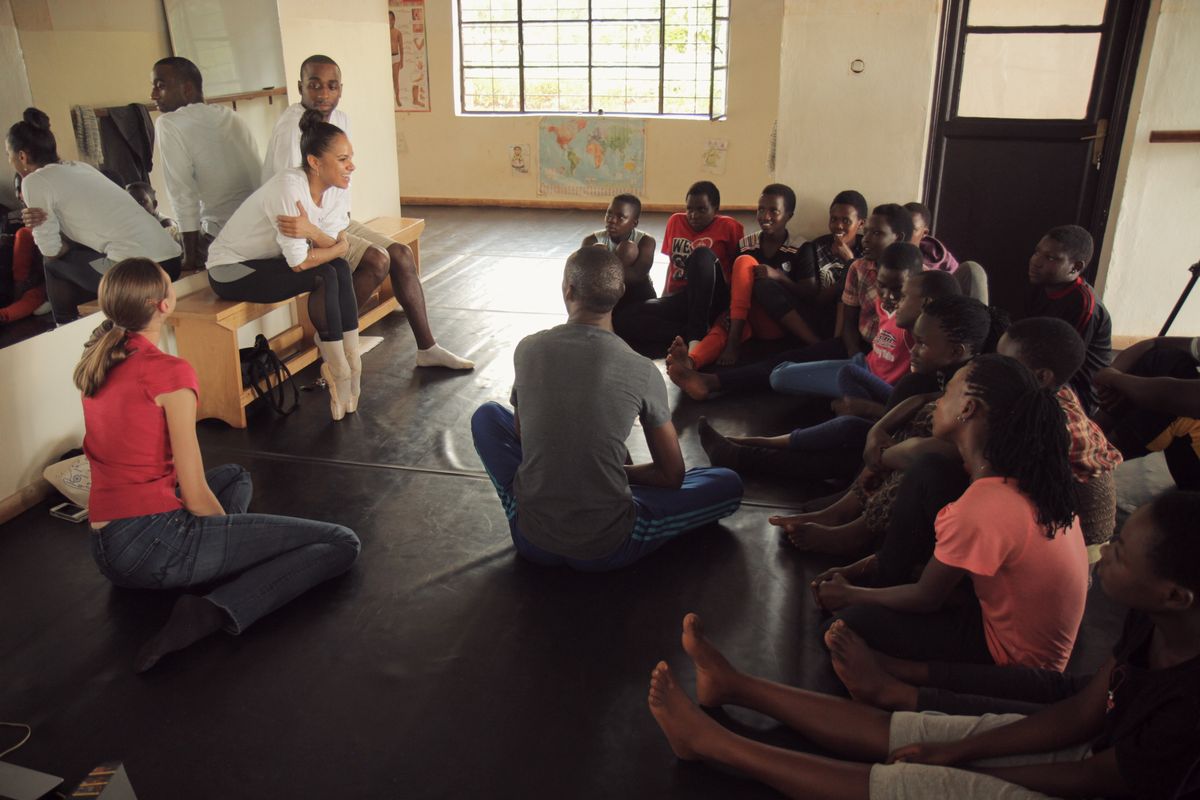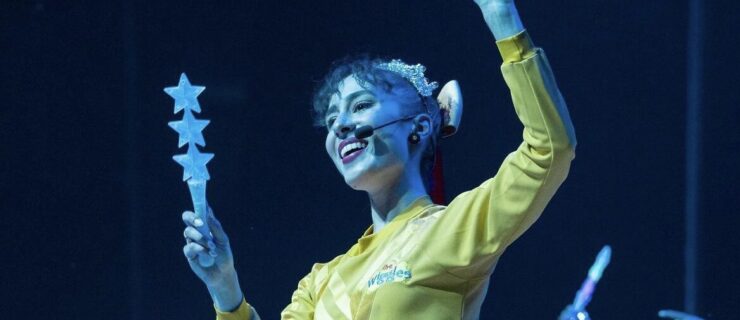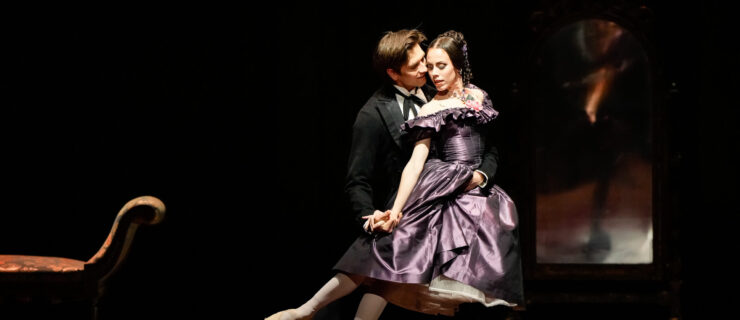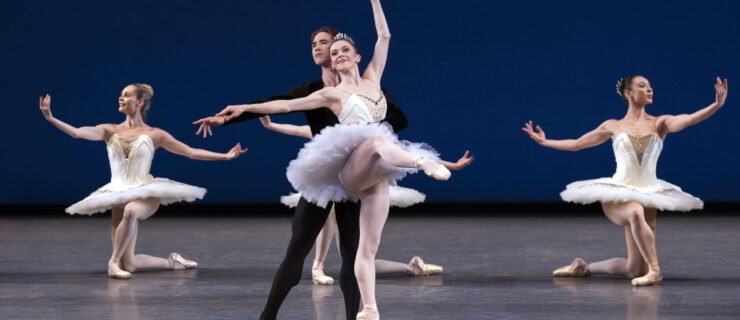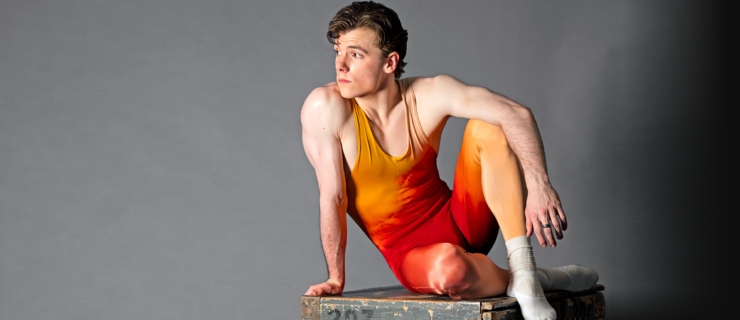The Power of Dance: Misty Copeland on Bringing Ballet to Rwanda
This story originally appeared in the April/May 2016 issue of Pointe.
Since the start of her career at American Ballet Theatre, Misty Copeland has been committed to giving back. “Having taken my first ballet class at a Boys & Girls Club, there was no way for me not to forever keep it a part of my life,” she says. Over the past few years, she has expanded her philanthropy. This past November, she traveled to Rwanda with MindLeaps, an organization that provides free dance classes to homeless youth as a way to introduce structure into their lives. Eventually, the program offers vocational training with computer and English classes and sponsors boarding school educations. Here, Copeland shares her weeklong experience in Rwanda, and how dance can transform lives.
I always say that dance saved my life—it gave me every opportunity and made me an intelligent and articulate person. Art can develop you as a human being, and I saw that through MindLeaps. In fact, I don’t think I really understood the magnitude of the program until I was in Rwanda. MindLeaps is trying to stop the cycle of poverty, and it’s amazing that it all starts with dance.
A few years ago, I met Rebecca Davis, who started the program, through a mutual friend. I was supposed to go three years ago, but had to postpone my trip due to an injury. But we kept in touch and decided that it was the perfect time for me to reschedule, especially with the platform that I have now.
 Courtesy MindLeaps
Courtesy MindLeaps
For the past three-plus years, MindLeaps has focused mostly on boys, but last November, I went to Rwanda to help launch the girls’ program. They grew up without homes and without having a family structure, for the most part, so if someone just threw them into school, they wouldn’t have the skills to flourish. In this program, dance sparks their interest and gets them in the door every day, making a commitment in a way that they have never experienced.
In the studio surrounded by other people like them, they start to develop skills that I don’t think you can learn sitting in a classroom. The classes have a set warm-up, and the program is very structured. There’s a little bit of ballet, of course, but it’s more about getting their minds to think about choreography and connecting all the parts of their bodies to their brain. And it’s about creativity. Once they’re caught up with their cognitive skills, MindLeaps introduces IT and English classes.
 Courtesy MindLeaps
Courtesy MindLeaps
Each morning I would wake up and have my “selfish” time, when I’d head to the MindLeaps studios and give myself a ballet class. The kids aren’t supposed to be there until late morning, but most of them don’t have anywhere else to be, so they’re there as early as 6 am, just hanging out in the yard. A lot of them would watch me from the window and imitate what I was doing. It was such a beautiful experience to start the day that way.
Afterwards I would watch a shortened version of their typical class and work with them, and then we would just talk. A lot of them didn’t speak English, so we had a translator, and they would ask me tons of questions. I would talk about my experiences with dance and where it has taken me.
 Courtesy MindLeaps
Courtesy MindLeaps
When I was growing up, I was constantly hiding the fact that my family didn’t have a lot of money or that we were living in a motel for a time. When I visited where some of the kids lived, I didn’t want to put them in a situation where they would feel like they were being exposed. It was a very strange feeling for me—it brought me back to that place. But they were very open and giving, and seeing where some of them lived was such an eye-opener. One of the teachers, who started out as a kid in the program, had recently lost his mother to AIDS, which is so normal in that community. He lives in a shack that’s about the size of my bathroom, with six of his siblings. Seeing it all was so surreal.
I ended up sponsoring a boy, Ali, to attend boarding school. Seeing the underground tunnel where he had been sleeping, and then the boarding school where he is sleeping now, makes me think about everything that I have—that I’m so grateful to have.
 Courtesy MindLeaps
Courtesy MindLeaps
I could see the program working, and it was incredible. Rather than just giving people money and putting them in school, it develops the skills that will help them flourish. I spent time with some of the boys who went through the program from the beginning, and it’s changing the cycle of their families’ lives. They’ll have opportunities for real jobs, so that their children won’t end up in the same position they were in. And dance is what got them in the door. Seeing it firsthand reconfirmed all of those things that I felt deep inside of me about my own experience.
It’s so fulfilling as a human and as an artist to help someone else, and to lift them up. That’s so much a part of my message in the mentorships that I have, and the women who have mentored me. It’s a beautiful thing—giving, and taking—that I think every person should experience.
